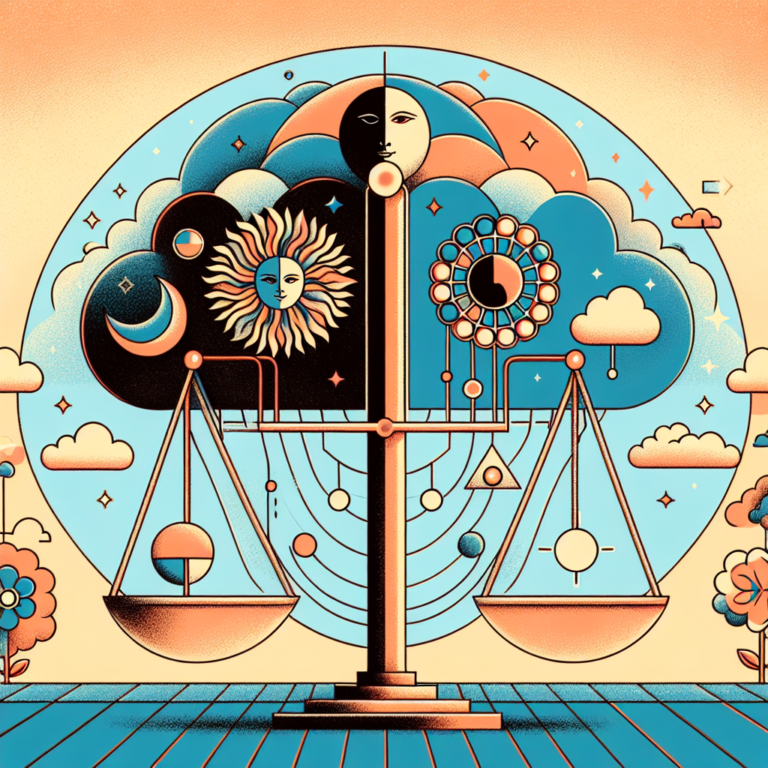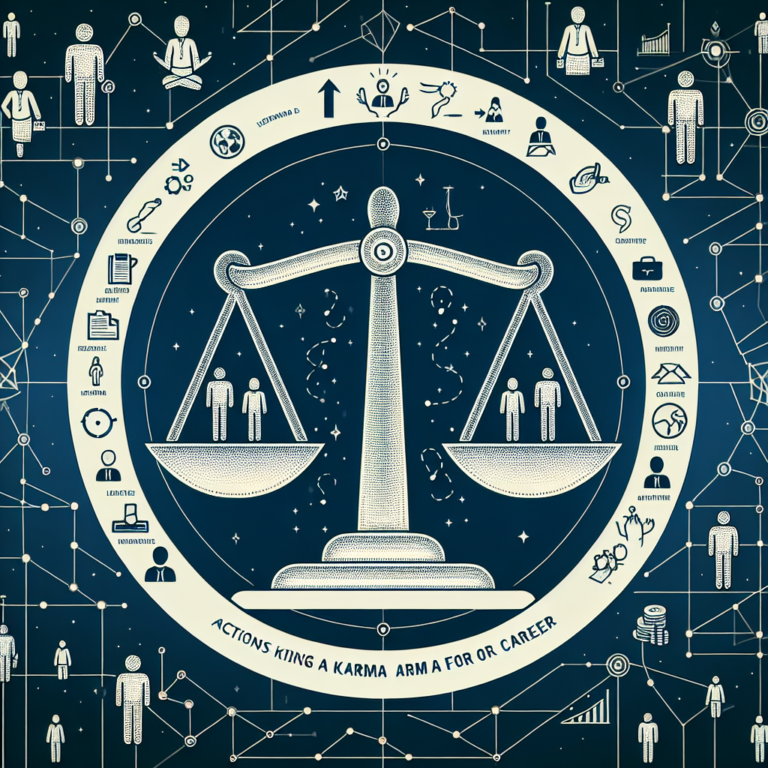Karma, a concept that originates from ancient Indian philosophy, represents the moral law of cause and effect. It has transcended cultural and temporal boundaries, appearing in various religious and spiritual traditions. At its core, karma posits that our actions—both good and bad—will eventually come back to us. This idea can profoundly impact our lives, shaping not only our interactions with others but also our overall well-being and happiness. In this article, we will delve into the power of positive karma and how good deeds can influence your life in remarkable ways.
Understanding Karma
Karma is often misunderstood as a simple system of rewards and punishments. Instead, it is more accurately described as a natural law of moral causality that governs our existence. According to karma theory, each action generates a corresponding reaction. When we engage in positive acts—such as compassion, kindness, and generosity—we set in motion a chain of events that can lead to beneficial outcomes in our lives.
The Cycle of Karma
The cycle of karma involves the following stages:
- Action: Every thought, word, or deed creates an outcome.
- Reaction: Positive actions lead to positive outcomes, while negative actions lead to negative results.
- Reflection: We learn from our experiences, and our understanding of karma evolves.
- Repetition: Our accumulated experiences shape future actions, thus perpetuating the cycle.
The Science Behind Kindness
Research supports the idea that engaging in good deeds can yield substantial psychological and emotional benefits. Studies in positive psychology highlight the following effects:
- Improved Mental Health: Helping others can reduce symptoms of depression and anxiety.
- Enhanced Well-Being: Kind acts boost our mood and increase overall life satisfaction.
- Strengthened Connections: Acts of kindness foster deeper relationships and social connections.
- Increased Resilience: Positive interactions can lead to higher resilience against stress.
Good Deeds and Personal Transformation
Engaging in good deeds isn’t solely about benefiting others; it also leads to personal transformation. When we act with kindness and compassion, we:
1. Cultivate Empathy
Performing good deeds helps us understand others’ perspectives, fostering empathy. This emotional connection allows us to relate better to those around us, enhancing our interpersonal relationships.
2. Build a Positive Self-Image
When we engage in altruistic behaviors, we tend to view ourselves more positively. This boost in self-esteem can empower us to take on new challenges and pursue our goals with greater confidence.
3. Spread Positivity
Every act of kindness has a ripple effect. When we do something good for someone else, they are likely to pay it forward, creating a chain of positive actions that can impact our communities profoundly.
Overcoming Negative Karma
While we may not have control over past actions that have led to negative karma, we can take proactive steps to mitigate its effects. Here are some strategies:
1. Acknowledgment
Recognizing past mistakes is the first step towards addressing negative karma. Acknowledgment allows us to learn from our actions and avoid repeating them in the future.
2. Practice Forgiveness
Forgiveness is a powerful tool for breaking the cycle of negativity. By forgiving ourselves and others, we release the weight of resentment and open ourselves up to positive actions.
3. Engage in Acts of Compassion
To create positive karma, focus on performing altruistic deeds. Volunteer, support a friend in need, or simply offer a smile. The more good you put into the universe, the more good you will receive in return.
Examples of Positive Deeds
Positive deeds can take many forms, and every small act counts. Here are some examples to inspire you:
- Volunteering: Give your time to a charity or community organization in need.
- Random Acts of Kindness: Hold the door for someone, leave a generous tip, or compliment a stranger.
- Mentor or Teach: Share your knowledge and experience with someone who can benefit from it.
- Donate: Contribute to a cause you’re passionate about, whether it’s money, clothing, or food.
- Be There: Simply being present for someone going through hard times can make a significant difference.
The Long-Term Effects of Positive Karma
The long-term effects of accumulating positive karma can be life-changing. Some of these effects include:
1. A Fulfilling Life
A life that revolves around kindness and service to others naturally leads to greater fulfillment. As you experience the joy of giving, your happiness will compound over time.
2. Improved Health
Studies indicate that individuals who engage in altruistic behaviors experience lower levels of stress, leading to better physical health. The psychological uplift from helping others can manifest in a healthier, longer life.
3. A Legacy of Kindness
Your actions can inspire others to follow in your footsteps. By living a life grounded in compassion and kindness, you set a powerful example for friends, family, and community members.
Creating a Culture of Positive Karma
As individuals, we can contribute to a wider culture of positive karma by encouraging and promoting good deeds in our communities. Here are strategies to foster a culture of kindness:
1. Educate Others
Share the concept of karma and the importance of kindness with those around you, especially children and young adults. Education is a powerful tool for change.
2. Lead by Example
Model the behaviors you want to see in the world. Your actions can inspire others to practice kindness and contribute positively to society.
3. Recognize and Celebrate Kindness
Publicly recognizing acts of kindness can motivate people to continue engaging in positive behavior. Create campaigns or initiatives that uplift and celebrate good deeds.
Conclusion
The power of positive karma reveals a profound truth: our actions matter. When we devote ourselves to performing good deeds, we not only enrich the lives of those around us but also foster our growth and happiness. The cycle of giving and receiving creates a sustainable and fulfilling life that perpetuates goodness. Embracing positive karma cultivates a supportive, empathetic, and loving community. To shape your life for the better, start today—commit to kindness, and you will reap the rewards of a life transformed by love and purpose.
FAQs
1. What is karma?
Karma is a concept that refers to the moral law of cause and effect, where every action has corresponding reactions in our lives. It is rooted in various spiritual traditions and emphasizes the importance of our choices.
2. How can I create positive karma?
You can create positive karma by engaging in acts of kindness, practicing compassion, volunteering, and spreading positivity within your community. Simple actions can have a profound impact.
3. Can negative karma be changed?
While we cannot erase past negative actions, we can mitigate their effects by acknowledging them, practicing forgiveness, and making a conscious effort to engage in positive deeds moving forward.
4. How does positive karma affect my health?
Engaging in good deeds and fostering positive relationships can lead to reduced stress, increased emotional well-being, and better overall health. Positive interactions can enhance your quality of life significantly.
5. Why is kindness important?
Kindness not only improves individual well-being but also fosters connection and community. It creates a ripple effect, inspiring others to act kindly and contributing to a more compassionate and supportive society.
It looks like you entered “Prompt,” but I didn’t get the full context. Could you please provide more details or specify what you’re looking for? Whether it’s a writing prompt, a topic for discussion, or something else, I’m here to help!, #Power #Positive #Karma #Good #Deeds #Shape #Life, #Power #Positive #Karma #Good #Deeds #Shape #Life, 1735345175, the-power-of-positive-karma-how-good-deeds-shape-your-life





